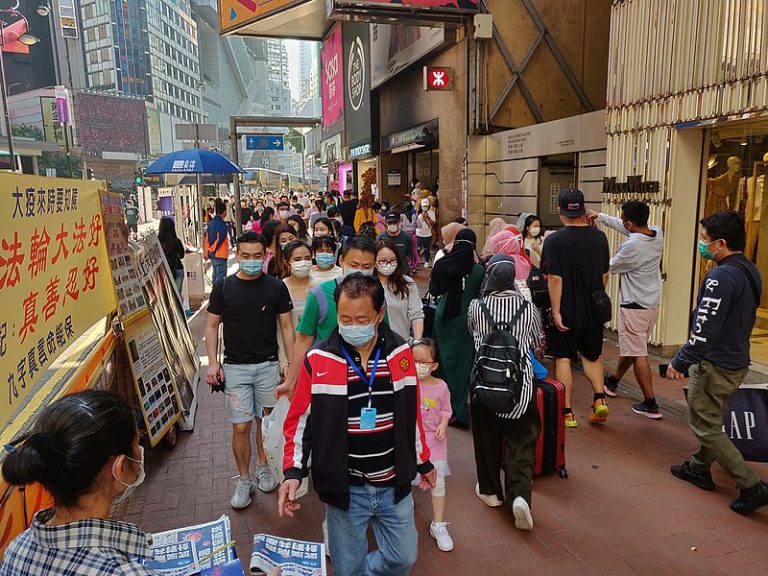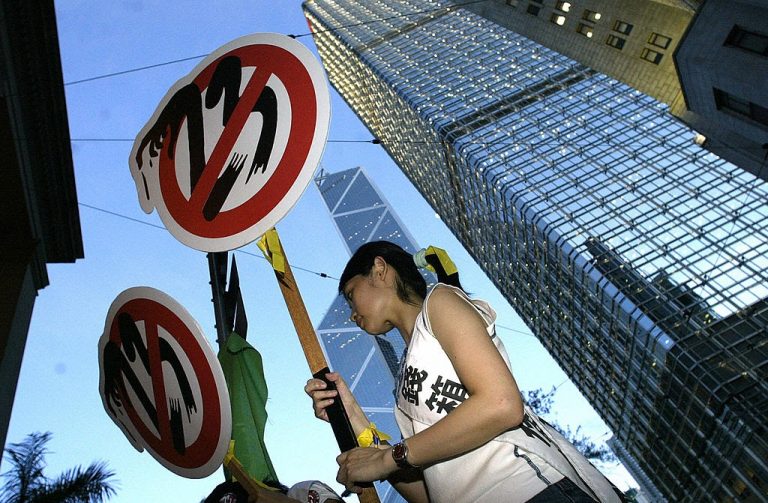Beginning on July 15, Hong Kong officials are planning to strap tracking bracelets on COVID-19 patients, who are under home quarantine, to ensure they remain at home.
The city’s communist-run government has previously made wearing these devices mandatory as part of its zero-COVID policy.
Tracking bracelets
Hong Kong’s new health secretary, Lo Chung-mau — who was appointed to the position on July 1 — said on Monday that patients who have tested positive and are under home quarantine will be required to wear tracking bracelets from Friday forward.
Lo said, “We have to make sure that home isolation is more precise while being humane,” The Guardian reported.
Those who test positive for the disease are allowed to quarantine at home, despite Hong Kong having other quarantine facilities. However, those who breach a home quarantine order will be subjected to a fine of up to HK$25,000 (US$3,200) and/or up to six months in jail.
Success
You are now signed up for our newsletter
Success
Check your email to complete sign up
In 2020, Hong Kong required people to wear tracking bracelets, with QR codes, when entering the city, and were forced to undergo a two week quarantine. These bands had to be periodically scanned by the wearer using an app on their phones. Others were given wristbands that allowed authorities to monitor their movements.
Lo did not specify which type of bracelet would be used on Friday.
READ MORE:
- Hongkongers Fear Tightening Regime Control as Officials Promote Mainland-style ‘Health Codes’
- Incoming Hong Kong Leader John Lee Strengthens Xi’s Authority Over City
- Hong Kong Hospitals Placing Body Bags Under Patients’ Beds as COVID-19 Surges Out of Control
- Hong Kong, Once a Bastion for Free Press, Now Ranks Dismally in Annual Press Freedoms Report
Security against the virus?
Hong Kong is currently adhering to the Chinese Communist Party’s (CCP) “zero-COVID” policy, and is implementing a draconian social control system involving “health codes.”
A “real-name registration system” is being considered for the Hong Kong epidemic prevention mobile app “LeaveHomeSafe.” In addition, a three-color coding system of “green, yellow, and red codes,” implemented in much of mainland China, is to be implemented in Hong Kong. The system will allow authorities to control people’s movement throughout the city.
A green QR code is for people who are allowed to enter public areas. Yellow codes are for people who have been in close contact with an infected patient, and for any travelers. A red code indicates that the person has tested positive for the virus.
For travelers, quarantine camps and hotel quarantines have been implemented for new arrivals, including pilots and flight crews, who have been especially targeted with quarantine measures.
According to Hong Kong’s Ming Pao newspaper, COVID-19 cases in the city have “rapidly risen” in the past few weeks. More than 2,000 cases were reported every day last week.
Human rights groups have blasted China’s health code system, saying it’s “an invasion of privacy,” The Guardian reported. They warned that Beijing could use the data collected to enforce their control and clamp down on freedoms.
Recently, when protestors gathered to demand answers from the Zhengzhou bank due to frozen accounts, some of the residents’ health codes were turned red by authorities in what was perceived as an attempt to quell the dissent.
Other local experts have also warned that the health codes and bracelets could end up discouraging people from reporting their positive results for fear that they could fall victim to the draconian laws.
While the measures could have a “marginal impact” on the spread of the pandemic, “the impact that is more concerning is the impact on testing and reporting,” Ben Cowling, chair professor of epidemiology at the University of Hong Kong’s School of Public Health, said.
“It may be in a week or two, it’s lower, not because transmission has gone down, but because people are not reporting,” Cowling added.
Despite the concerns, it appears that the CCP and Hong Kong’s government will not hold back on their zero-COVID strategy. Lo even defended the strategy, saying that “living with the virus” would “get us all killed.”
“The introduction of these measures, if anything, is going in the other direction, back toward more stringent control, even though we have higher vaccine coverage, and availability of antiviral drugs now,” Cowling said.













